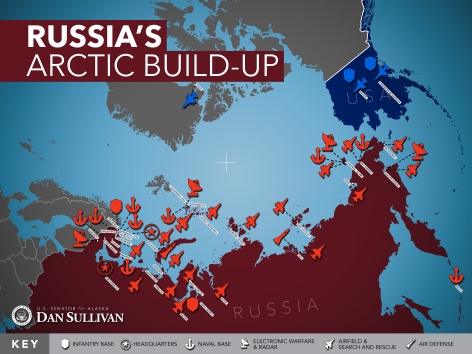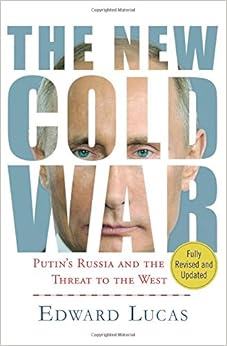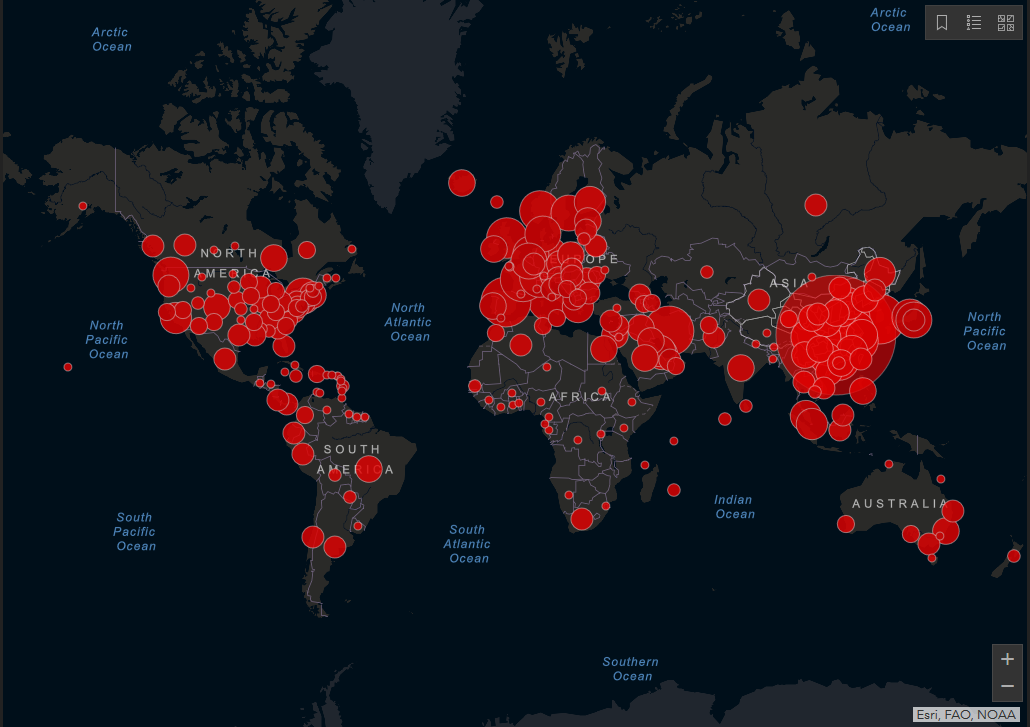 On May 19, 2011 Russian President Dmitry Medvedev, a former Soviet Komsomol member, and Gennady Zyuganov, Chairman of the (secretly ruling) Communist Party of the Russian Federation, met at the Kremlin to discuss the upcoming parliamentary and presidential elections, to be held this December and in March 2012, respectively. At this time, Medvedev announced that he plans to hold similar meetings with the leaders of Russia’s other political parties.
On May 19, 2011 Russian President Dmitry Medvedev, a former Soviet Komsomol member, and Gennady Zyuganov, Chairman of the (secretly ruling) Communist Party of the Russian Federation, met at the Kremlin to discuss the upcoming parliamentary and presidential elections, to be held this December and in March 2012, respectively. At this time, Medvedev announced that he plans to hold similar meetings with the leaders of Russia’s other political parties.
The charade that is “post”-communist Russia’s “pluralistic” political system was once again in evidence in May when Prime Minister Vladimir Putin organized the All-Russian Popular Front to broaden support for his parliamentary cheering squad, United Russia. Strangely, Putin is the titular head of this “centrist-nationalist” placeholder for the Communist Party of the Soviet Union, but not actually a party member. Ahead of the December elections, United Russia, symbolized by the iconic Russian bear, is, according to The Telegraph, “busily forming an ambitious campaign program, while the popular Putin is redoubling efforts to render this all credible for the voters.”
Meanwhile, the CPRF created the “People’s Militia,” which will serve as a “broad-scale popular militia for the defense of justice, labor peace and fraternity,” Zyuganov was quoted by Kommersant as saying. The same day, Just Russia leader Sergei Mironov concocted his own “popular front” by announcing the formation of the Union of Supporters of Just Russia. Lastly, in late May, Eduard Limonov’s National Bolshevik Party joined forces with Sergei Udaltsov’s Red Youth Vanguard (AKM) to form the anti-Putinist National Salvation Committee. Until his death in 2009, AKM enjoyed the patronage of Oleg Shenin, member of the Soviet Politburo and mastermind behind the potemkin anti-Gorbachevist coup in 1991.
With a hat tip to the fundamentally fraudulent nature of Russia’s “democratization,” first implemented by Soviet President Mikhail Gorbachev, sociologist Olga Kryshtanovskaya, a coordinator of United Russia’s “liberal wing,” acknowledges: “There is fashion not only in clothes but in politics. It’s a trend. In Russia, all political innovations come from the top. There are practically no new viable ideas that arise outside of the government.” There you have it from the horse’s mouth. Russia’s “post”-communist political parties have little or no real independent mass base.
Putin has already written off the “copycat fronts,” while United Russia’s State Duma speaker, Boris Gryzlov, grumbled that the other parties were “copying” Putin’s program. United Russia officials wistfully insisted that Mironov’s and Zyuganov’s initiatives were actually a reflection of “growing political pluralism.”
The CPRF’s “People’s Militia,” according to Duma deputy Konstantin Zatulin, is a reaction to the “unique tandem rule” in Russia, where Medvedev, who occupies the more important political post of president, is nevertheless widely viewed as Putin’s lackey. “Politics is coming back because there is a new sense of the unexpected,” commented Zatulin, who was ousted from the Duma CIS Committee earlier this spring over his calls for Putin to run again for president. In an interview with the Moscow News he confided: “And what is most worrying for United Russia is that there are alternatives within the government itself. Tandem rule is creating a situation where there is more maneuvering room for the opposition. They have a chance that they didn’t have before. [The Communists] want to have a real fight.”
According to The Telegraph, neither Just Russia nor Vladimir Zhirinovsky’s misnamed Liberal Democratic Party of Russia have a serious chance of achieving the threshold
required for a presence in the Duma, namely, five percent of the vote. The CPRF, however, can count on winning about 15 percent, not only relying heavily on a “thinning body of pensioners who still yearn for the USSR,” but also on a growing number of middle-aged and younger voters who view a vote for communism as an effective protest vote. The “Red Belt” in southern European Russia remains a bastion of communist support
Journalist Georgy Bovt cautions, though, that “the number of such voters will not grow, primarily because Zyuganov makes too many compromises for the protest electorate, and has failed to come up with any new ideas in a long time. The party has stagnated and no regeneration is expected in this election cycle.” The CPRF continues to demand the nationalization of just about every industry in Russia and the restoration of Soviet-era social programs. At the same time, on foreign policy issues, the open communists of the CPRF differ little from the “ex”-communists in United Russia. In other words, most Russian politicians advocate a strong Russian influence in the former Soviet republics and a belligerent attitude toward the USA and NATO.
Kremlinologists should bear in mind that the concept of a “popular front” traces its origin to the Communist International’s response to fascism in the late 1930s. At the time, communist parties that were members of the Comintern, then largely under the personal control of Soviet dictator Joseph Stalin, adopted a policy of forming broad alliances with almost any political party willing to oppose the fascists.
Since United Russia supports both Putin and Medvedev, it is still not clear who will cede ground to the other. On occasion, Medvedev has tried to distance himself from his mentor by launching some mild rebukes against the former chief of the Federal Security Service (FSB/KGB). On June 6, the Russian president complained that the “centralized Kremlin rule” restored to Russia during the eight-year reign of his predecessor was “outdated.” Medevedev elaborated: “This is bad. This means that we have a completely outdated, flawed system of (state) management, which needs to be changed. When all the signals are sent from the Kremlin, it shows that the system is not viable, it needs tuning.”
Medvedev, a former university law teacher and Gazprom chairman, has styled himself a “champion of democracy,” promising to fight corruption and modernize the economy but, according to critics, has failed to fulfil any of his promises. Last month, a senior Kremlin official pointed out that uncertainty over Russia’s political future is partly to blame for tens of billions of dollars in capital flight during the first months of 2011.
The contrived nature of Russian political pluralism is a fundamental component of perestroika, the long-range policy of “restructuring” that Moscow’s Leninists have pursued since Gorbachev. According to KGB defector Anatoliy Golistyn, the purpose of the “perestroika deception” is the formation of a “mature socialist society” in Russia and, still more importantly, the deception of the West into believing that Soviet communism is “dead.”
The fact that Russia’s politicians are closer to one another in their ideology than they would have most Western observers believe was also evident in late 2009. At that time, Zyuganov approvingly noted that Medvedev’s “Go Russia!” article, which served as the springboard for the president’s state-of-the-nation address calling for Russia to modernize, mirrored the Communists’ “Go Russia, Toward Socialism!” program. Zyuganov gloated:
President Medvedev speaks about modernization, while Prime Minister Putin endorses conservatism. The program of innovations offered by the president in the state-of-the-nation address has not been supported by the United Russia party and government. President Medvedev said state corporations work ineffectively, but the prime minister provides cover for this ineffectiveness.
While Zyuganov has grown increasingly critical of Putin during the global financial crisis that began in late 2008, he has taken a softer stance toward Medvedev, suggesting that the Communists prefer Medvedev in the ruling tandem. “I am not saying the Communists will make Medvedev their leader, but they will take each other’s interests into account” in the next Duma elections, commented Alexei Mukhin, an analyst with the Center for Political Information. However, he added that “the Communist Party was the only major political group left for Medvedev because the others were controlled by Putin and his retinue.”
At that time, Zyuganov denied that his party, the legal successor to the CPSU, would merge with Just Russia, an idea publicly floated by Mironov.
In the quote above, Medvedev opines that the Russian “system” needs “tuning.” Actually, the Russian “system” does not need tuning. Twenty years after the fake collapse of Soviet communism, it still needs a complete overhaul with a “new management” committed to building grassroots democracy in Russia. However, according to United Russia official Kryshtanovskaya, this will never happen. After all, the August putschists received reduced sentences and comfortable retirement packages (like Shenin), or went to their graves with full pensions (like Gennady Yanayev) without accounting for the blood of the old regime on their hands. After all, too, their erstwhile adversary Gorbachev is still pounding the lecture circuit in the West, demanding that President Barack Hussein Obama implement socialism in the USA. All of these facts expose the continuity of the Moscow Leninists’ long-range deception plan.
In a related story, Elena Bonner, the prominent Russian human rights activist and widow of Andrei Sakharov, the Soviet dissident, nuclear physicist, and Nobel Peace Prize
winner, has died at the age of 88. Together with her husband, who died in December 1989, Bonner campaigned for human rights during the Soviet era, becoming an inspiration for democratic movements across Russia and East Europe that hastened the end of (open) communist rule between 1989 and 1991. She continued to campaign for democracy in “post”-Soviet Russia, accusing Chekist Putin, then president, of using “KGB-style tactics” to suppress civil liberties.
After publicly criticizing the Soviet invasion of Afghanistan in 1979, Sakharov himself was sent into internal exile in Gorky – now Nizhny Novgorod – then a closed city barred to foreigners. Bonner accompanied her husband into exile, but was arrested five years later for helping him communicate with the West. Golitysn maintains that Sakharov was a false, or controlled, dissident. This is very likely since Sakharov was a recipient of the Lenin Prize, Stalin Prize, and Hero of Socialist Labor well before he co-founded the Committee on Human Rights in the USSR in 1970. In The Perestroika Deception (London: Edward Harle, 1995), Golitsyn writes (pages 24-25):
The new method [of analyzing Soviet politics] detects an active Soviet offensive to reach the American elite and to engage it in close cooperation and “restructuring” in the United States. This operation is evident, inter alia, from the following developments . . . The active role of Sakharov, the main KGB agent of influence, in introducing “perestroika” to the United States. Sakharov began these activities in the 1960s. In 1967, he dispatched his well known manifesto to the West, in which he predicted:
(a) The victory of the “realists” [in the CPSU], economic reforms and expanding “democracy” in the USSR [1960-80].
(b) The victory of the left-wing reformers [in the CPSU, like Gorbachev], their attack on the “forces of racism and militarism” and changes in the structure of ownership in the United States and other capitalist countries [1972-1985].
(c) Soviet-American cooperation over disarmament and “saving” the poorer half of the world [1972-90].
(d) The restructuring of society and convergence of the Communist and capitalist systems leading to the creation of a (socialist) World Government [1980-2000].
The predictions disseminated by Sakharov, made when the strategy of “perestroika” was already in preparation, represented a deliberate projection of the essence of the strategy to members of the radical Left in the West in order to orientate them on, and prepare them for, forthcoming developments in the USSR. This was a strategic signal by the Soviet strategists to their potential political allies in the West–particularly to their agents of influence and Euro-Communists. In the event, the time-frames laid down by Sakharov proved to have been only marginally “out.”
Sakharov’s predictions concealed the fact that restructuring and convergence form the essence of the Soviet long-range strategy with its aggressive intent against Western democracy. What is in fact the development of Soviet strategy in action, is described by Sakharov as a spontaneous process and, in his own typically Leninist words, “the most optimistic unrolling of events.” From the mid-1960s to 1980, the KGB under Brezhnev’s neo-Stalinist rule allowed Sakharov to conduct his “criticism” and other activities as leader of, and spokesman for, the “dissident movement.” It was Sakharov who injected the Soviet view of the human rights issue into the debate by writing to President Carter on the subject. This raises an interesting question. Why was the unreformed KGB so tolerant of Sakharov despite his apparent criticism of Soviet actions? That tolerance is explained in terms of Sakharov’s active role in the execution of Soviet strategy, operation under cover as a controlled “dissident.” In 1980, a few years before the advent of Gorbachev’s “perestroika,” Sakharov was “exiled” to Gorky. The “exile” of Sakharov was a typical KGB device to build up his reputation and influence as a “dissident” (as opposed to an “enemy of the people”) in the West.
Sakharov’s high-profile role in facilitating the introduction of “change” in the Soviet Bloc, coupled with the Kremlin-controlled political theater that exists to this day in Russia, is yet another manifestation of communist duplicity and Western gullibility.
 – Germany’s Bild Tabloid Cites US Central Intelligence Agency Report as Saying Military Coup in Greece Possible
– Germany’s Bild Tabloid Cites US Central Intelligence Agency Report as Saying Military Coup in Greece Possible












